![thumbRNS-OLYMPICS-RELIGION080516a [web]](http://dejiokegbile.com/wp-content/uploads/2016/08/thumbRNS-OLYMPICS-RELIGION080516a-web-300x187.jpg) I always want to hear God talking to me through games and sports. Rio 2016 Olympic Games, the 16-day athletic gathering officially opened in Rio de Janeiro last Friday. The temporary struggles, prizes, crowns, and triumphs of the Olympic Games examined in the level of our spiritual life and eternity and God provides a reflection for us, considering the disqualification of some athletes by the World Anti-Doping Agency (WADA). Some of the athletes left the Olympic race track and regulations just as many Christians today are putting the Bible aside, leaving the grace track of salvation, faith and righteousness, hence they are disqualified (Matt 7:22-27). The reflection is that just as the early Christians were alien to some of our practices of Christianity today, modern Olympics in our modern world is full of ‘accusations of drug-taking and financial chicanery,’ a departure from ‘the peaceful diplomatic mission of the ancient Games.’
I always want to hear God talking to me through games and sports. Rio 2016 Olympic Games, the 16-day athletic gathering officially opened in Rio de Janeiro last Friday. The temporary struggles, prizes, crowns, and triumphs of the Olympic Games examined in the level of our spiritual life and eternity and God provides a reflection for us, considering the disqualification of some athletes by the World Anti-Doping Agency (WADA). Some of the athletes left the Olympic race track and regulations just as many Christians today are putting the Bible aside, leaving the grace track of salvation, faith and righteousness, hence they are disqualified (Matt 7:22-27). The reflection is that just as the early Christians were alien to some of our practices of Christianity today, modern Olympics in our modern world is full of ‘accusations of drug-taking and financial chicanery,’ a departure from ‘the peaceful diplomatic mission of the ancient Games.’
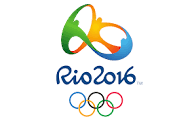 Since the beginning of the Olympic in Ancient Greece, when the first Olympic champion, ‘a cook named Corobus won the the only event – a 192-meter footrace, ‘the pomp and prestige of the Games is to raise the stakes for the worlds top athletes.’ The Games named for their location at Olympia., a sacred site in southern Greece according to legend was founded by Heracles, ‘son of Zeus and the mortal woman Alcmene,’ as Greek religious festival to honour Zeus Olympios, the chief Greek god and the mighty overlord of Mt Olympos. There was an end to the ancient Olympic tradition based on the instruction of Emperor Theodosius 1, a Christian, in A.D. 393, when he banned all ‘pagan’ festival. After 1,500 years, a young French baron, Pierre de Coubertin (1863-1937) proposed the idea of reviving the Olympics as an international athletic competition held every four years between August 6 and September 19. The first modern Olympics were held in Athen, Greece, in 1896 with a crowd of 60, 000 and 280 participants (all male), from 13 nations who competed in 43 events. The five interlocking rings – coloured blue, yellow, black, green, and red on a white field as the symbols of the modern Games designed in 1912 represents the ‘continents of America, Asia, Africa, Europe and Oceania.’
Since the beginning of the Olympic in Ancient Greece, when the first Olympic champion, ‘a cook named Corobus won the the only event – a 192-meter footrace, ‘the pomp and prestige of the Games is to raise the stakes for the worlds top athletes.’ The Games named for their location at Olympia., a sacred site in southern Greece according to legend was founded by Heracles, ‘son of Zeus and the mortal woman Alcmene,’ as Greek religious festival to honour Zeus Olympios, the chief Greek god and the mighty overlord of Mt Olympos. There was an end to the ancient Olympic tradition based on the instruction of Emperor Theodosius 1, a Christian, in A.D. 393, when he banned all ‘pagan’ festival. After 1,500 years, a young French baron, Pierre de Coubertin (1863-1937) proposed the idea of reviving the Olympics as an international athletic competition held every four years between August 6 and September 19. The first modern Olympics were held in Athen, Greece, in 1896 with a crowd of 60, 000 and 280 participants (all male), from 13 nations who competed in 43 events. The five interlocking rings – coloured blue, yellow, black, green, and red on a white field as the symbols of the modern Games designed in 1912 represents the ‘continents of America, Asia, Africa, Europe and Oceania.’
The book ‘Eric Liddell: Something Greater than Gold, by Janet and Geoff Benge provides a renewing reflection on the devotion to the greatness of God above the pomp and prestige of the Games. The testimony of Eric Liddel who ‘had won every 100 meter race he had run since early in his running career,’ put God beyond Gold. Eric was Scotland’s hero and fastest sprinter. Eric did not allowed the Olympics race to hinder his worship of God. To him, ‘Sunday was a day of worship and rest, hence ‘he would not run even if he were his country’s only hope of winning an Olympic gold medal.’ In one of such Olympic that was scheduled on a Sunday, Eric did not run and many Scottish people were very upset and labelled him as a traitor. Eric never run on Sunday but another slim opportunity came for him to win the 400-meter race but with very little time to train. On the day of the race, Eric trainer gave a note to him that read, ‘He who honours Him, He (God) will honour,’and Eric ‘crossed the finish line first, winning the gold medal! He had also set a new world record.’ He later stop running to return to ‘China to tell people about Jesus,’ at a time when it was very dangerous to go due to Japanese invasion of China. The movie about him later won the Academy Award.
David Boudia with Tim Ellsworth in their book ‘Greater than Gold: From Olympic Heartbreak to Ultimate Redemption, provides another dramatic Gold-winning Olympic diver. The book, about David Boudia, one of America’s most heralded young divers and a gold-medalist at the 2012 London Olympics and winner of multiple world championship medals is a ‘story of single-minded focus, heartbreaking disappointment, against-the-odds triumph, and finding the source of true fulfilment: faith in God,’ David failed in his first Olympics until after four years when he won ‘both gold and bronze,’ because he ‘changed his focus of his quest from seeking glory for himself to giving glory to God.’ The reflection is that, just as David and Eric placed their hope in God and received ‘what they ‘ve been seeking all along, we can overcome the heartbreaking disappointments of the worldly prizes which could easily fade away.
The essence of Olympic Games according to Coubertin, not only in winning, ‘but to take part,’ informed the mission of Olympic Spirit ‘to build a peaceful and better world … which requires mutual understanding with a spirit of friendship, solidarity and fair play.’ However, the development in the World Anti-doping Agencies and banning of some athletes is a challenge to the Olympic Spirit that ‘strives to inspire and motivate the youth of the world to be the best they can be..’ Coupled with a market-driven and modern capitalist system, Olympic like any other sports, politics and religion is now associated with the world economic reality.
The use of five imagery of sporting competition – ‘dedication, discipline, determination, dependence and  decoration,’ by the Old and New Testament writers of the Bible shaped Eric and David’s journeys of faith and devotions to God above the pomp and prestige of the Olympics (Heb 1:11-13, Phil 4:13; 1 Cor 9:25-27; 1Tim 4:8). Using the words of prophet Isaiah, Eric and David put their hope not in doping, but in the Lord Who ‘gives strength to the weary and increases the power of the weak. Even youths grow tired and weary, and young men stumble and fall; but those who hope in the LORD will renew their strength. They will soar on wings like eagles; they will run and not grow weary, they will walk and not be faint’ (Is 40:21). Eric and David were dedicated, disciplined and determined to win gold without loosing God, their eternal prize (1 Cor 9:25-27).
decoration,’ by the Old and New Testament writers of the Bible shaped Eric and David’s journeys of faith and devotions to God above the pomp and prestige of the Olympics (Heb 1:11-13, Phil 4:13; 1 Cor 9:25-27; 1Tim 4:8). Using the words of prophet Isaiah, Eric and David put their hope not in doping, but in the Lord Who ‘gives strength to the weary and increases the power of the weak. Even youths grow tired and weary, and young men stumble and fall; but those who hope in the LORD will renew their strength. They will soar on wings like eagles; they will run and not grow weary, they will walk and not be faint’ (Is 40:21). Eric and David were dedicated, disciplined and determined to win gold without loosing God, their eternal prize (1 Cor 9:25-27).
The Olympics and others races in life calls for a determination and godly purpose beyond ‘a prize that will fade away.’ Olympic is one of the few things that brings humanity to oneness, but in Christian worship, we have something greater. Eric and David points us to ‘something infinitely greater.’ Olympic Games and gold is for the young, but the heavenly prize is open to young and old, therefore, the worship of God, the race for eternity is open to all and it goes beyond the race for the Olympic gold.

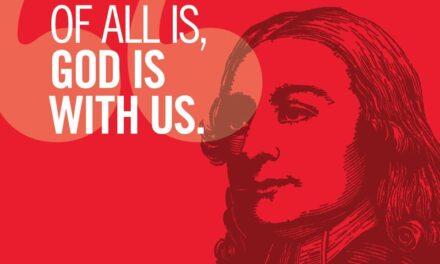
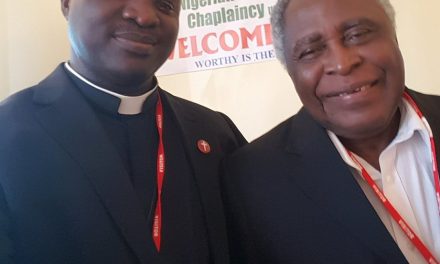
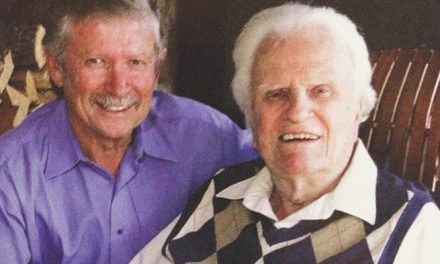
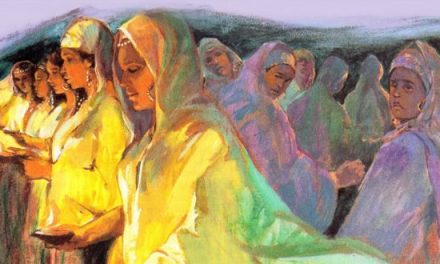





Recent Comments